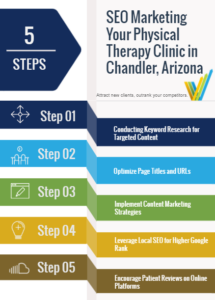A SEO strategy is crucial component of any marketing campaign. The COVID-19 pandemic has provided a big boost to the online market, resulting in website traffic that drives more sales conversions than ever. With SEO playing a significant role in directing sales, SEO strategists must avoid the following mistakes.
1) Ignoring Mobile Optimization
Website traffic has been evolving for several years, since the introduction of smartphones with internet capabilities. Now, consumers access websites and other media on their smartphones more often than computers. In the first quarter of 2021, a staggering 54.8% of website trafficoriginated on smartphones, a marked increase from the 31.16% of mobile website trafficin the first quarter of 2015.
Furthermore, 76% of consumersreport that they use their mobile devices for online shopping, with 90% confirming that they have made purchases this way. As a result, mobile optimization is a key SEO strategy for every company conducting business online. Ignoring mobile optimization is one of the worst mistakes you can make while creating an SEO strategy.
When you prioritize mobile optimization for your website, you’ll find yourself focusing on how quickly your website loads, shortening the length of written content, and optimizing videos for mobile viewing. Using these principles in tandem with mobile-friendly website designs and reliable web hosting will help boost your mobile website traffic. Your reward will be increased sales conversions from mobile-surfing consumers.
2) Overlooking Metadata
Marketers use meta tags to describe the content of a website. The most important of these descriptions is the title of each webpage. This metadata helps improve your SERP rankings based on the keywords used. Title tags are the words that show up as the hyperlink on search engine results. Using appropriate keywords in a title tag can do wonders for your SEO strategy.
Other metadata that’s equally important include the description tags that show up beneath the title tag, headings, and descriptive image tags. These should be unique on each page of your website to be best received by Google and other search engines. Repetitive titles, headings, and image tags may get flagged. Failing to prioritize metadata in an SEO strategy can undercut your efforts and prevent you from increasing traffic to your website.
3) Failing To Optimize For Local Searches
One of the main things that can help you improve your SERPs rank is optimizing your website for local search results. Your local market is much smaller than a statewide or nationwide market, making it easier to get noticed. Consumers often search for museums, restaurants, parks, and other recreational activities when making plans. Mobile searches for products and services “near me” tripled between 2016 and 2018. These search engine queries aid consumers both at home and when they are on vacation.
Businesses that fail to optimize their website for local search terms are missing out on website traffic from consumers who live in their local market and any visitors from out of town. Lower website traffic translates to fewer sales conversions, meaning you’re losing out on revenue.
Trust the Experts at Visual Rankings
Developing an SEO strategy is challenging. Many mistakes can hamper efforts to improve SERPs rankings organically. The experts at Visual Rankings have many years of experience creating SEO strategies. If you’d like a consultation for a five-star SEO game plan, visit our websitetoday!






